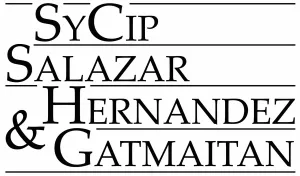Introduction
This guide, which focuses on how foreign corporations can set up a legal presence in the Philippines, was first published in 2015, when our firm celebrated its 70th anniversary, and this most recent update was prepared in connection with our 78th anniversary celebrations. We hope that this guide, containing the relevant information on the systems of law, the legal forms through which people carry out business, capital requirements, how entities are operated and managed, expansion possibilities, corporate governance, employment law and more, will be instructive to businessmen and lawyers alike and will showcase the Philippines as an attractive venue for business ventures.
I. Doing Business in the Philippines
The Revised Corporation Code of the Philippines ("RCC"), which took effect in 2019, requires any foreign corporation doing business in the Philippines to obtain a license to do business from the Philippine Securities and Exchange Commission ("SEC").
The term "doing business" is defined broadly under Section 3 (d) of the Foreign Investments Act of 1991, as amended ("FIA"). It includes:
- soliciting orders or service contracts;
- opening offices (whether called "liaison" offices or branches);
- appointing representatives or distributors domiciled in the Philippines or who in any calendar year stay in the country for a period or periods totaling 180 days or more;
- participating in the management, supervision or control of any domestic business, firm, entity or corporation in the Philippines; or
- any other act or acts that imply a continuity of commercial dealings or arrangements, and contemplate to that extent the performance of acts or works, or the exercise of some of the functions normally incident to, and in progressive prosecution of, commercial gain or of the purpose and object of the business organization.
The FIA also enumerates certain acts which are not considered as "doing business:"
- investment as a shareholder in a domestic corporation and/or the exercise of rights as such shareholder;
- having a nominee director or officer to represent its interest in a domestic corporation;
- appointing a representative or distributor domiciled in the Philippines which transacts business in the representative's or distributor's own name and account;
- the publication of a general advertisement through any print or broadcast media;
- maintaining a stock of goods in the Philippines solely for the purpose of having the same processed by another entity in the Philippines;
- consignment by a foreign entity of equipment with a local company to be used in the processing of products for export;
- collecting information in the Philippines; or
- performing services auxiliary to an existing isolated contract of sale which are not on a continuing basis.
A foreign corporation doing business in the Philippines without the required license will not be permitted to maintain or intervene in any judicial or administrative action in the Philippines; however, such foreign corporation may be sued or proceeded against before Philippine courts or administrative tribunals on any valid cause of action recognized under Philippine law.
This lack of capacity to sue or denial of access to the courts at the time of the cause of action does not apply to cases of enforcement of foreign arbitral awards obtained in its favor pursuant to an arbitration clause in a contract. The Supreme Court has held in the case of Tuna Processing, Inc. v. Philippine Kingford, Inc. (G.R. No. 185582, February 29, 2012) that Republic Act No. 9285, also known as the Alternative Dispute Resolution Act of 2004, does not require that the party seeking the enforcement should have legal capacity to sue.
Click here to continue reading . . .
SyCipLaw partners Hiyasmin H. Lapitan, Bhong Paulo A. Macasaet, Joan Mae S. To-Conejos, and Joanna Marie O. Joson prepared the updated version, with the assistance of special counsel Catherina M. Fernandez and associate Ma. Carina Theresa G. Guanio.
The content of this article is intended to provide a general guide to the subject matter. Specialist advice should be sought about your specific circumstances.





